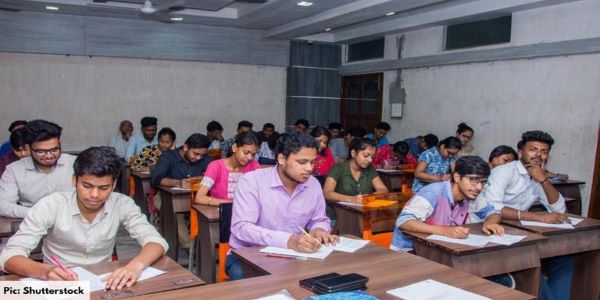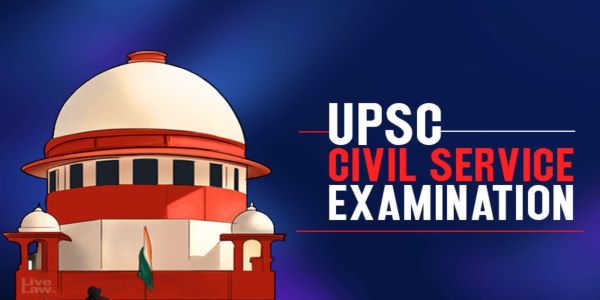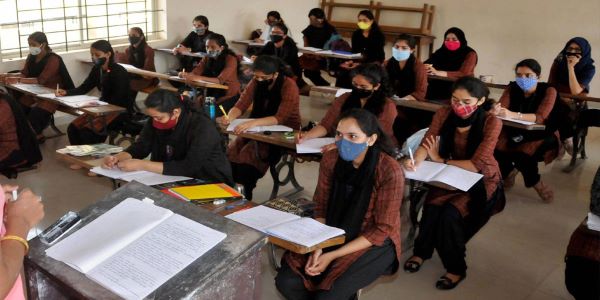UPSC exam has many different stages. The selection process is quite tough. However, it is easier to understand. For anyone new to this exam, do not worry, we have you covered. UPSC selects highly intellectual candidates only. Moreover, this is among India’s toughest exams too. Hence, many times new aspirants are scared. However, with the right information in hand, you need not worry. Firstly, you should understand the different stages of the exam. Secondly, you need to know the time this test will take. Thirdly, you should try to create a blueprint of your study schedule if you take up this exam. Fourthly, check the exam pattern and syllabus in detail. Moreover, check out the last 10 years’ UPSC(IAS) prelims/mains previous year’s question paper pdf with answers.
Exam Overview
Talking about the exam stages, the exam begins with a preliminary stage. This stage has two papers. Here, the first one is a compilation of general studies. However, the second one is an aptitude-based paper. The first paper tests your merit and decides your selection into the next stage. However, the second paper qualifies you for the next stage. Hence, both are equally important in nature. Only and only if you clear the prelims as per the defined cutoff will you be called up to write the second stage of the exam. The first stage isn’t a written test actually. It has MCQ-type questions. Hence, most candidates find it easier than the second stage or the mains exam. However, the truth is that the prelims have limited options and often confuse students.
UPSC(IAS) Previous Year Question Paper
In the latest years, UPSC has a habit of setting difficult prelims papers. Hence, candidates need to prepare rigorously for this stage first and then think about the mains test. Moreover, the prelims exam pattern follows a negative marking scheme. Thus, you have to carefully mark your answers. On the other hand, this isn’t the case with the mains answers. In the mains test, you won’t have four options to choose from. Instead, you have to write down the answers within 150 or 250 words. Hence, it is a subjective stage of the exam. Moreover, the time is limited and students rush to complete their papers. The mains exam is almost a week long. Hence, you will not get enough time between two different papers.
Moreover, you also have to take care of qualifying and merit papers. Thus, we well-planned study timetable is much needed. If you stand to crack the mains stage as well, you will be called upon for a personal interview. On cracking the personal interview, your training and service allotment takes place. Hence, UPSC is a long journey. You can read about the training phase here: click now. In today’s article, we will talk about the last 10 year’s UPSC IAS prelims/mains previous year’s question paper PDF with an answer.
UPSC(IAS) Prelims Previous Year Question Paper Analysis
Firstly, we will discuss the prelims papers and their difficulty levels starting from the year 2011 up to the year 2020. Moreover, we will add the UPSC previous year’s prelim question paper PDFs as well. Firstly, we will talk about the UPSC prelims previous years’ question paper from the year 2011. Both GS I and II are of 200 marks in prelims. In 2011, there were around 13 current affairs questions. However, history and geography shared an equal number of 11 questions each. Furthermore, there were 12 questions on the polity subject. Economy and Science and Tech had 19 questions each in the paper. Lastly, the environment topic contributed 15 questions to the paper. Hence, in the year 2011 UPSC prelims previous year’s question paper analysis, we understand that eco and sci made up the maximum number of questions in the paper.
As we saw, 2011 had 13 questions from current affairs, contrary to that, the 2012 paper had only one question from current affairs. There were 19 questions from History and 17 from Geography. On the other hand, Polity contributed around 20 questions this year. There were 17 eco and environment questions each. Lastly, there were only 9 science and tech-based questions in 2012. Hence, the 2012 paper was all about Polity and other topics, but less about current affairs. For the year 2013, the prelims paper had zero current affair questions. However, there were 16 history, 18 geo, 16 polity, and 19 eco questions in this year. Moreover, the science and tech topics had 14 questions and the environment topic had 17 questions. Thus, up to now, we have noticed that environment is an important prelims subject.
2014 to 2020 UPSC(IAS) Prelims Paper Analysis
In the year 2014, there were 8 current affair questions only. In the year 2015, there were 22 questions from current affairs. However, in the year 2016, there were 27 current affair questions in the GS I paper. This is the highest weightage given to current affairs given ever in prelims. In the year 2017-2018, there were only 15 to 14 current affairs questions. Moreover, the years 2019 and 2020 had 22 and 18 current affairs questions. Thus, over the years current affairs have been an important part of the exam overall. For history, there were 20 questions in the year 2014, 17 questions in the year 2015, 15 questions in the year 2016, and 14 questions in the year 2017.
Moreover, there were 22 questions from history in 2018, 17 questions in the year 2019, and 20 questions in the year 2020. You can check the UPSC previous year’s question paper PDF with answers for rectification. For geography, there were 14 questions in 2014, 16 in 2015, 7 in 2016, 9 in 2017, 10 in 2018, 14 in 2019, and 10 in 2020. Thus, the years 2016 and 2017 saw the least geography questions in the prelims paper. For polity, there were 14 questions from this subject in the year 2014, 13 in the year 2015, 7 in 2016, 22 in 2017, 13 in 2018, 15 in 2019, and 17 in 2020. Thus polity has been consistent in the UPSC previous year’s question papers. It is an integral part of your GS paper one in prelims as well as an inseparable part in the mains test.
Economics, Science and Tech, Environment Questions in Prelims
Furthermore, the economics section has always had 10 plus questions in the prelims paper. Therefore, both static and current economics is very essential to help you crack the exam. There were 10 economy-based questions in the year 2014. Moreover, there were 13 questions in the year 2015, 18 in 2016, 16 in 2017, 18 in 2018, 14 in 2019, and 15 in the year 2020. As per the UPSC prelims previous year’s question paper PDF with answers, there were 16 science and tech questions in the year 2014. Moreover, the 2015 and 2016 papers had only 8 questions on this topic. However, there were 9 questions in the year 2017 and 10 questions in the year 2018. Thus, there is a consistency in the number of questions asked every year. Furthermore, there were 10 questions in 2018 and 2020 and 7 questions in the year 2019.
After the economy subject, the environment topic has the highest number of questions in the UPSC prelims previous year’s question papers. In the year 2014, this section contributed around 18 questions to the paper. In the next year, the number dropped to 11. Again in the year 2017, there were 18 environment questions. However, in the year 2018, there were only 13 questions in the paper. Moreover, the 2019 paper had 11 questions and the 2020 paper had 10 questions only. Hence, as per the last 10 year’s UPSC question papers PDF with answers, we see that gradually, the environment questions have declined.
UPSC Mains Question Paper Analysis
We looked at the analysis for the last 10 years’ UPSC question papers PDF with answers. Now let us talk about the 2020 UPSC mains question paper analysis. Firstly, the candidates believed that the essay paper was quite tough for them. In GS I there was four questions from Indian Heritage and culture. That is question number one, two, eleven, and twelve. Question number one and two were of moderate difficulty and carried ten marks each. However, questions number eleven and twelve were difficult and carried fifteen marks each. Thus, this topic carried 50 marks in total. Further, there were 2 questions from the modern India topic. One was for 10 marks while the other was for 15 marks. There were eight geography and six Indian society questions. The overall difficulty was moderate to high.
GS II, III, and IV
In GS II there was a total of 10 questions from polity in the UPSC IAS mains question paper. Hence, this subject carried around 125 marks in total. Furthermore, there were only two governance questions. Hence, this topic carried 20 marks. There were four questions from the social justice subject. Hence, this section carried 55 marks overall. There were 4 international relations questions in the UPSC previous year’s question paper. Hence, IR carried a total of 50 marks. In GS III there were 8 questions from the Indian Economy. Moreover, there were four science and technology questions in 2020. On the other hand, the environment subject had only 3 questions. Hence, there were fewer questions in mains on the environment side. There was only one question from disaster management. However, there were 4 internal security questions in 2020.
The GS paper four was of moderate difficulty and hence, candidates didn’t face much difficulty in solving this UPSC previous year question paper. To download the last 10 year’s UPSC IAS previous year’s question paper PDF with answers: click here.
FAQs
While practicing UPSC IAS previous year’s mains and prelims question papers you will realize that usually, the mains exam is lengthy. The question demands an answer in limited words. Moreover, you have to cover a wide ground in simple language. Hence, one can give a minimum of 5 to 7 mins to write a ten-mark answer.
To write a 15 mark answer, you shouldn’t take more than 10-12 minutes. A small imbalance can cause a grave shortage of time in the end. Thus, leading to an incomplete paper. No matter how you write, the quality of your paper and completeness is very essential.
No, the interview round is not very tough. However, it is meant you judge yourself overall as a person. Thus, some tricky questions might be asked. But candidates must not lose hope and baffle, instead, they should handle such questions with ease and patience for better performance.
Editor’s Note | UPSC Previous Year Question Paper
Here we will conclude our article. In today’s article, we saw the different dimensions of the UPSC IAS previous year’s mains and prelims question papers. Moreover, we talked about the UPSC last 10 years’ question paper PDF with answers for practice. Thus, overall this article will help you to strengthen and guide your UPSC preparation in different ways. You should always try and solve previous year’s papers. But more important is to analyze them. Thus, we have analyzed the papers for your ease of practicing. Thus, saving your time for other important things. We wish you all the best for your journey ahead.









